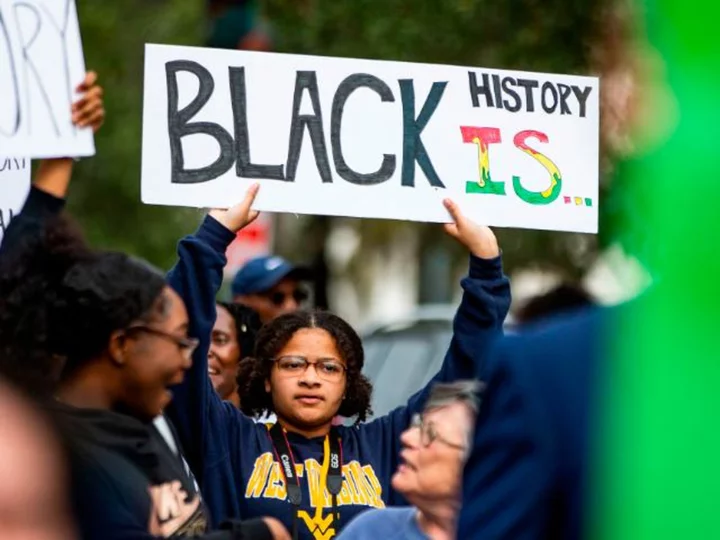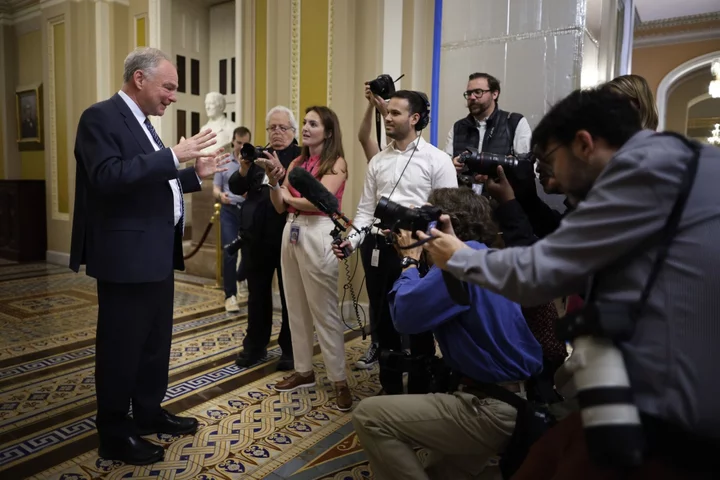Middle school students in Mayade Ersoff's Miami-Dade social studies class learn about the history of slavery in America through art.
After lessons, students illustrate the harsh realities that enslaved people suffered: from being kidnapped and jammed onto slave vessels, to toiling in fields of cotton. "No one is agitated or upset," Ersoff said of her diverse sixth grade US history classes.
Instead, she said, students are often intrigued to learn about this dark chapter in our nation's history. "They don't want to repeat what happened in the past," Ersoff said.
But despite her students' eagerness to learn, Ersoff will soon be forced to tailor her lesson plans to Florida's new education standards, which now include a controversial benchmark: students must be taught slaves benefited from bondage.
According to the state's newly-adopted education standards for African American history, middle school students are required to learn "how slaves developed skills which, in some instances, could be applied for their personal benefit."
Around 100 activists and community members took part in a protest over the new standards in Miami on Wednesday.
The curriculum change comes as Florida Gov. Ron DeSantis continues to make the culture war against so-called "woke" ideology a central focus of his campaign for the 2024 Republican presidential nomination.
Earlier this year, DeSantis rejected the College Board's AP African American Studies course for high school students because it included lessons on reparations, Black queer studies, and the Movement for Black Lives. He has also barred instruction in schools that suggests anyone is privileged or oppressed based on their race or skin color.
The governor's office has defended the changes to the Black history curriculum, noting that the AP African American Studies course also outlines how, "In addition to agricultural work, enslaved people learned specialized trades and worked as painters, carpenters, tailors, musicians, and healers in the North and South. Once free, (African) Americans used these skills to provide for themselves and others."
During a recent campaign stop, DeSantis addressed the controversy surrounding the new education standards, saying "scholars" wrote the curriculum and that it was not politically motivated.
"They're probably going to show that some of the folks that eventually parlayed being a blacksmith into doing things later in life," he told reporters last month.
But as backlash grows and the culture war continues, teachers say they are struggling to navigate what they can and cannot say inside their classrooms. For her part, Ersoff, who is White, told CNN she does not plan to adopt or teach the state's narrative on slavery.
"These standards are atrocious," Ersoff said. "There are no benefits (to slavery). There are no benefits to being grabbed from your home, shackled on boats, being lynched, being beaten. Not allowed to read and write. And treated like a piece of property."
'Leave children out of this'
The feud over how Black history is framed in Florida has sparked protests and prompted some historians to begin educating teachers and families outside the classroom.
On August 12, just days before the start of the school year in Miami, a group of teachers clustered around a historic marker in Ocoee, Florida. Despite the sweltering heat, they listened attentively as Miami-based historian Marvin Dunn explained the history of the Ocoee Race Massacre.
In November 1920, a White mob attacked and killed more than a dozen Black Ocoee residents after they attempted to exercise their right to vote. To depart from that history, Dunn told the teachers assembled, is a lie.
"Don't teach that lie," he urged them.
Dunn began giving Florida Black history tours earlier this year in response to the state's attempt to curb so-called "woke" lessons on race and racism. He calls them "Teach the Truth" tours.
"It's a sad commentary on how this history is being twisted," Dunn told CNN. "We will not stand for it, and we will not allow our children to be taught these lies."
On Wednesday, Dunn led a march in downtown Miami to protest the new education standards. The group of about 100 activists and community members carried signs and chanted "Teach the truth!" as they marched a little over a mile to the Miami-Dade County Public Schools headquarters.
Ersoff, who attended the march, said she believes watering down Black history lessons could have lasting impacts on students.
"They will graduate not knowing the truth and when they get into the real world, it's all going to be a shock to them," Ersoff said. "Leave children out of this political game ... and stop using them as pawns."
'Detrimental to our community'
Teachers aren't the only ones frustrated with the changes. Some Florida parents tell CNN they feel the new education standards for Black history -- combined with the ban on the AP African American studies course -- risk erasing Black history in classrooms.
"I don't care how they address it, how they put it, how they word it, there will never be a benefit for anybody to be put through the cruelty and everything that they put (slaves) through," said Mildred Slocum, who is helping raise her granddaughter, Janiyah Spivey.
Given the recent changes, Slocum said she feels forced to educate the 14-year-old outside of school.
The pair took a Black history bus tour with Dunn earlier this year.
Janiyah, a 10th grade student at Design and Architecture Senior High School in Miami, said she feels the state is trying to "sugarcoat" the realities of Black history by enacting the new classroom requirements.
"I feel like it's detrimental to our community because I feel like you should know about this and what happened to us in the past," she said.
Slocum said she feels the best way to fight back against these changes is to vote.
"We need to get people in (elected) office that embrace the truth about Black history."









